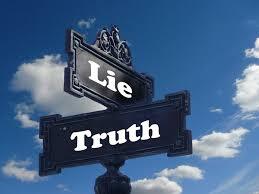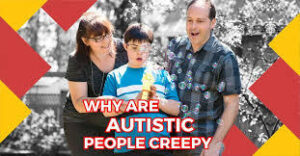behavioral questions are asking you to lie
5 min read
Introduction to behavioral questions in interviews
behavioral questions are asking you to lie.Imagine sitting in a job interview, palms sweating and heart racing. The interviewer leans in and asks, “Can you tell me about a time you faced a challenge at work?” Suddenly, you’re spiraling into memories—struggling to conjure the perfect story that showcases your skills. But here’s the catch: as you weave your tale of triumph, are you being set up? Behavioral questions are designed to dig deep into your past experiences, but they can also unwittingly lead candidates down a slippery slope of unintentional lies. Let’s explore how these questions shape interviews and what they could mean for both you and potential employers.
Why employers use behavioral questions
Employers often turn to behavioral questions as a means of predicting future performance. This approach is rooted in the belief that past behavior is a reliable indicator of how candidates will react in similar situations.
By asking about specific experiences, employers can gauge problem-solving skills, teamwork abilities, and cultural fit. They aim to uncover not just what you’ve achieved but how you approached challenges along the way.
These questions also help interviewers avoid biases associated with traditional interviewing techniques. When structured properly, they promote consistency across interviews, making it easier to compare candidates objectively.
This method allows employers to dig deeper into your qualifications beyond what’s on paper. It’s less about textbook knowledge and more about real-world application—how you’ve handled pressure or resolved conflicts before coming into their fold.
The problem with relying on behavioral questions
Relying heavily on behavioral questions can create significant challenges in the interview process. These questions are designed to uncover past experiences, but they often lead candidates down a tricky path.
Many individuals struggle to recall specific incidents under pressure. This stress can cause them to embellish or modify their stories, turning genuine responses into unintentional lies. When job seekers feel cornered, honesty may take a backseat.
Additionally, not everyone has had the same range of experiences. A candidate might be perfectly qualified yet lack examples that fit neatly into these behavioral frameworks. Consequently, valuable talent could be overlooked simply because their story doesn’t align with what an interviewer expects.
This reliance can also skew assessments of cultural fit and teamwork skills. It risks reducing complex personalities and capabilities to overly simplistic narratives that don’t capture true potential.
How people tend to respond to behavioral questions
When faced with behavioral questions, many candidates instinctively feel the pressure. They often search for the “perfect” answer rather than sharing their genuine experiences. This can lead to a performance-driven mindset.
Some individuals may embellish stories or tweak details to fit what they think employers want to hear. The desire to impress sometimes overshadows honesty, creating scenarios that aren’t entirely true.
Others might get flustered and struggle to articulate their thoughts clearly. They could provide vague responses or rely on generic examples that lack substance.
Additionally, some candidates become overly rehearsed. Their responses sound scripted rather than authentic, which can raise red flags for interviewers who value sincerity.
This complex dance of self-presentation reveals just how tricky behavioral questions can be in eliciting true reflections of character and skill sets.
The impact of unintentional lies on the hiring process
Unintentional lies can create significant challenges during the hiring process. When candidates feel pressured to answer behavioral questions in a specific way, they often misrepresent their experiences. This pressure can lead to responses that don’t reflect reality.
Employers may mistakenly interpret these answers as truths. They might believe they’ve found the perfect candidate based on fabricated scenarios. Trust is essential for a healthy workplace, yet it starts with honest communication in interviews.
Misleading information can disrupt team dynamics later on. If someone is hired based on inflated claims, their inability to meet expectations could lead to frustration among colleagues and managers alike.
Moreover, organizations may invest time and resources into training individuals who don’t align with company values or culture due to misleading responses. The long-term impact of unintentional deception ripples through teams and projects, undermining overall productivity and morale.
Alternative methods for assessing job candidates
Employers can explore various methods beyond traditional behavioral questions to evaluate candidates effectively. One approach is skills assessments, which provide hands-on tasks relevant to the job. This allows employers to see a candidate’s actual capabilities in action.
Another option is situational judgment tests (SJTs). These present hypothetical scenarios that reflect real workplace challenges and gauge how applicants would respond. It’s an engaging way to assess critical thinking and decision-making skills without putting pressure on past experiences.
Group interviews or team-based exercises also offer insights into collaboration and communication styles. Observing candidates interact with others helps illuminate soft skills that might not shine through in one-on-one settings.
Consider structured interviews focused on specific competencies rather than broad behavioral questions. This method ensures a more consistent evaluation across all candidates while minimizing the risk of unintentional misrepresentation during the interview process.
Conclusion and tips for navigating behavioral questions in interviews
Navigating the complex world of interviews can be challenging, especially when faced with behavioral questions that might unintentionally lead candidates to misrepresent themselves. Employers often rely on these questions to gauge a candidate’s past experiences and predict future behaviors. However, as we’ve seen, this reliance can create an environment where unintentional lies are more likely to surface.
To handle behavioral questions effectively, it’s important for candidates to prepare thoughtfully. Reflecting on genuine past experiences is essential. Use the STAR method—Situation, Task, Action, Result—to structure your responses clearly and authentically.
Practice answering commonly asked behavioral questions but focus on honesty rather than perfection. If you don’t have a specific experience that fits the question perfectly, it’s better to acknowledge it than fabricate details.
Additionally, consider asking clarifying questions during the interview if something feels ambiguous or leading. This not only shows engagement but also gives you time to think about your answer.
Job seekers should remember that interviews are two-way streets; they are just as much about finding mutual fit as they are about impressing a potential employer. By embracing authenticity and transparency in their responses—even if it means admitting shortcomings—candidates can build trust from the outset.
While employers may use behavioral questions thinking they’re getting honest insights into applicants’ capabilities and character traits, candidates must approach these inquiries with care. Prioritize sharing true stories over crafting what you think an ideal response looks like; after all, sincere communication paves the way for authentic connections in any professional relationship.




